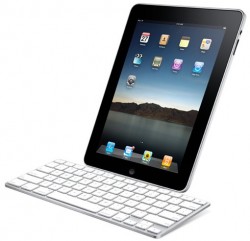 Since first subscribing to the daily paper this summer, I’ve been exposed to more Dear Abby columns than a 1950s trophy wife. The last one I read was horribly political, so I decided to guide the advice-seeker myself. Here goes:
Since first subscribing to the daily paper this summer, I’ve been exposed to more Dear Abby columns than a 1950s trophy wife. The last one I read was horribly political, so I decided to guide the advice-seeker myself. Here goes:
Dear Smooth Harold: My husband wanted to postpone having children until we were more financially secure. But I really wanted a baby, so he agreed, though only after I promised to return to work once the baby was born. That was a year ago. We now have a wonderful 2-month-old, and since “Avery” cam along, I realize how important it is for me to be at home with her. My husband disagrees. he says we need my salary in order to meet our financial obligations, and he is angry and upset that I won’t return to work. But I think there’s nothing as important as the nurturing a mother give her child. Who’s right?—R.F., Southern California
My reply:
Dear R.F.: Why on Earth would you ask me, a complete stranger, such an important question without knowing my background first? I could be a baby-snatcher for all you know, or completely against everything you believe in! But alas, perhaps you’re at your wits end and have no one to confide in. If that’s the case and you don’t feel comfortable anonymously researching different opinions online or posting to a message board, then I’ll indulge you. And I assure you I’m neither a baby-snatcher nor a posturing moral hypocrite. Continue reading…
 As this report so eloquently states, media is still best consumed with a mouse and keyboard, passive video, or with opposing hands leafing through pages of information. “Interactive media” as seen on the iPad is as useful as “multimedia CD-ROM dictionaries” from the 1990s, m’kay?
As this report so eloquently states, media is still best consumed with a mouse and keyboard, passive video, or with opposing hands leafing through pages of information. “Interactive media” as seen on the iPad is as useful as “multimedia CD-ROM dictionaries” from the 1990s, m’kay?
Now if you’re talking about entertainment, I’m all for gesture based interaction. But for straight consumption of information, give me visual ads, easy flowing editorial, and search.
Time Magazine is wrong.
As newspapers — and by extension 80% of all original reporting — face extinction, along with print, the magazine says websites should charge $.10/day or $2/month to access the news. Author Walter Isaacson says this will offset the loss of subscription and classified revenue so creative journalists can still “get paid” in addition to advertising, which isn’t performing well online.
As a freelance journalist, nothing would please me more than getting better pay for the work I do. But I think Isaacson is off the mark — people will never pay for commodity information online (remember the failed “paid” content idea?). If network TV news can survive (while some even thrive) on advertising alone, why can’t websites? Isn’t the idea to stay lean and mean and choose your reporting battles, which can be expensive (say… stationing a full-time journalist in Iraq like the LA Times does on its constituents’ dime)?
Anyone got any ideas? Otherwise, our ability to watch guard government, corporations, and the public through journalism could be compromised.
Economist.com — “Pick almost any American newspaper company and you can tell a similar story. The ABC reported that for the 530 biggest dailies, average circulation in the past six months was 3.6% lower than in the same period a year earlier; for Sunday papers, it was 4.6% lower. Ad revenues are plunging across the board…”
Fact: many technologists were quick to predict the death of pen and paper with the rise of typewriters and personal computers. Similarly, many technologists predicted book sales would decrease with the rise of e-book readers.
That being said, older technology can often persist in light of new technology through adaptation (i.e. new technology does not always obviate older technology). I believe the same is true for newspapers and magazines, provided they accentuate their remaining value (portable text, reputation, local community, and/or more non-ephemeral reporting like features).
[via Digg]
 Since first subscribing to the daily paper this summer, I’ve been exposed to more Dear Abby columns than a 1950s trophy wife. The last one I read was horribly political, so I decided to guide the advice-seeker myself. Here goes:
Since first subscribing to the daily paper this summer, I’ve been exposed to more Dear Abby columns than a 1950s trophy wife. The last one I read was horribly political, so I decided to guide the advice-seeker myself. Here goes:
 As
As